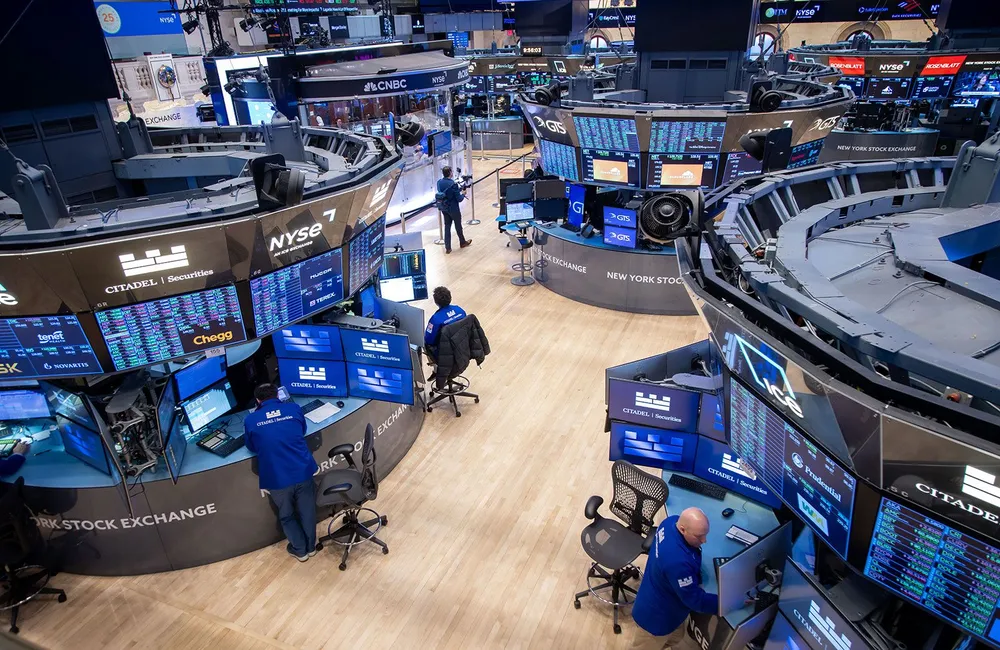It seems a bad opportunity cost when the markets run up. In an inflation, real returns become sharply negative and cash rapidly loses purchasing power.
For money managers vaulting over the bears, it’s also a tricky gap to cross. It may have a low impact on fund performance, since fund mandates typically give stocks the freedom to sit on a reasonable amount of cash, and the cash lets the manager protect portfolios, but 10% cash earning zero, as in a 20% market rally year, is still a 2% performance drag. It is a large loss of potential ‘alpha’ that can remove a performance fee and trigger investor attrition. The cash is unhedged at the reported benchmark.
If you held onto cash and missed parts of the strong stock market rally last year, you are not alone. At year-end, Warren Buffett’s Berkshire Hathaway was sitting on US$144 billion in cash (actually short-term Treasury bills), or an impressive 30% of her portfolio.
Buffett is sure not to want to hold cash (other than cash needed for insurance claims), yet in a hot market he has found it hard to find companies available at prices he likes. He wrote recently:
“Every so often such possibilities are both abundant and unmistakably alluring. Today we find little that we like.”
This week, he finally mauled a multi-year major acquisition drought when Berkshire Hathaway announced it would buy the insurance company Alleghany for US$11.6 billion, and would finance it from within his business.
More:
Australian fund manager presentations suggest cash attitudes vary at the moment. For example among medallist funds, Magellan, Investors Mutual and Pendal fund equity portfolios that hold about 10 per cent cash at present, while others such as Alphinity, T Rowe Price and DNR have around 4 per cent and many closer to 2 per cent normally.
Cash for an individual is also more than a means to protection of capital and psychological comfort. It could be money for survival, lowering the need to sell in a downturn. For instance, many financial advisers construct portfolios with a floor of cash, no matter how they feel about the prospects for the market (two years of anticipated expenses, for example). A superannuation pension has to be drawn down each year (at least 4% a year will have to be drawn down from 1 July 2022 onwards). Cash also enables investors to quickly capitalize on an opportunity, without the need to sell something else.
As early as 2022 there were indications of stronger retail allocations to cash, with ETF catches such as Shares Enhanced Cash ETF along with < i > BetaShares Australian High Interest Cash early stars on the inflows list in January. The same was true at the very beginning of Covid-19. But cash ETFs plunged in February 2022 so the trend was not maintained.
With inflation rising, more people potentially might feel comfortable holding cash in the coming years. The market is pricing in cash rates of more than 2.25% for 2023, which, on one hand will remain negative in real terms, but will also be enough to keep the more conservative section of the investment community happy. And the interesting part is that markets are pricing in a larger increase in cash rates in Australia than in similar nations, even in the high-inflation US.
Cash allocations both as a percentage of investment portfolios have returned to April 2020 Covid-19 levels, according to Bank of America latest Global Fund Manager Survey (FMS). Cash allocations haven’t been this elevated since 2001 get a load of this chart below.
For you or they, the Ukraine war and inflation threat are primal but if you keep your eye on objectives and a multiyear time frame, that should steer clear of temptation to retreat to yield. Strangely, as we’ve noted previously, share markets tend to bounce back quickly from wars and crises. For retail investors who are sitting on more cash than they would like, it must be reassuring to realise that a lot of professionals are too.
For example, some of the big fund managers provide a suite of vehicles allowing access by investors to the same fund, which can provide opportunities for switching or accessing at a lower entry point. It's worth what you save when every additional percentage point compounds nicely over the long-term even if you have to check the market price and execution costs.
The war in Ukraine continues with no end in sight.
We bring you two articles this week on the fallout.
Inflation for the rest of the world there’s very little that’s been written on the invasion of Ukraine in the economic and economic growth commentary, much of it focused on oil and energy prices globally. The Russian oil industry was already in crisis before the invasion. The geopolitical analyst Peter Zeihan steps back and writes, beset by a lack of local expertise, global warming and geographical challenges. Then there is this compendium of research from analysts providing their take on the war's impact across sectors and companies under coverage.
In NSW, the closure announcement of the Eraring Power Station puts local energy needs in sharper focus. The NSW government spruiks clean air but as Tony Dillon explains, the plan to replace Eraring's output with a 700 megawatt battery worries some experts.
Private equity growth
Private equity has slowly been acquiring bigger slots in institutional portfolios, and access is improving for retail investors. Pictured: Russel Pillemer, co-founder of Pengana, argues the case for the asset class.
Real estate and interest rates
How does a rising interest rate environment impact the global listed real estate sector? Justin Blaess, portfolio manager at Quay Global Investors explores.
Blockchain keynote
Finally, Senator Jane Hume delivered a keynote address to a blockchain industry conference on Monday likening the possibilities of the "new virtual frontier" with the Victorian gold rush and the internet in the 90s. We print an edited extract of her speech.
White paper for sponsors
This week, a white paper for sponsors: Neuberger Berman, The inflation inflection and the new paradigm, how to structure your portfolio in a world of uncertain inflation.





















